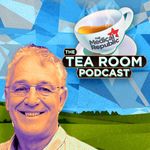Should women be warned on breast density?
There’s been a swell of advocacy lately around breast density, which increases cancer risk while reducing the sensitivity of mammograms.
The FDA in the US has recently mandated that women be notified by mammogram providers if they have dense breasts, giving them the opportunity to arrange supplemental testing.
But BreastScreen Australia’s 2020 position statement does not recommend the routine recording of breast density or the provision of supplemental testing for women with dense breasts.
Professor Vivienne Milch, the government’s medical advisor on screening policy, and Professor Bruce Mann, a breast surgeon and researcher, are two of our guests today in the Tea Room – the last Tea Room before we become The Medical Republic Podcast and go from weekly to fortnightly episodes.
We also talk to two patients about their experiences with breast density and cancer, who find the lack of notification baffling – and a little bit 1950s.
Dr Sandy Minck, a GP by training and a breast cancer survivor, said she was “dumbfounded” by the BSA position statement.
“As a consumer I'm outraged. As a health professional, I'm dumbfounded. I just don't understand it.”
Professor Milch says the program will conduct an evidence review on supplemental screening for women with dense breasts some time this year, although there is no guarantee of a policy change.
“We're aware of the growing momentum of advocacy and of also some women's desire to know their breast density,” Professor Milch says, adding that different states have different policies.
“Western Australia has been telling women about their breast density for some time, and then there are pilots in some services in [Queensland and South Australia].
“We may or may not have a policy change. But we'll be looking at the evidence.”
Professor Bruce Mann, who works with the Roadmap to Optimising Screening in Australia (ROSA) project, says there is enough evidence to justify a change to BSA’s screening regimen.
“As women and the community becomes more informed, there is a danger that what is offered by BreastScreen will be seen as insufficient,” he said, which will lead to women opting out of BreastScreen and going private.
“What we don't want in this country is a two-tiered system where those who know and can get the best, do, and everyone else gets what's offered to them. That's what we are working to avoid.
“If you can show that by doing something different you are finding more cancers, fewer cancers are being diagnosed between screening rounds, and the stage, the size and the nodal status of cancers that are diagnosed is moving in a favourable direction, I believe that's sufficient to encourage implementation with a planned review in 10 years when the mortality information's there.”
Hosted on Acast. See acast.com/privacy for more information.









